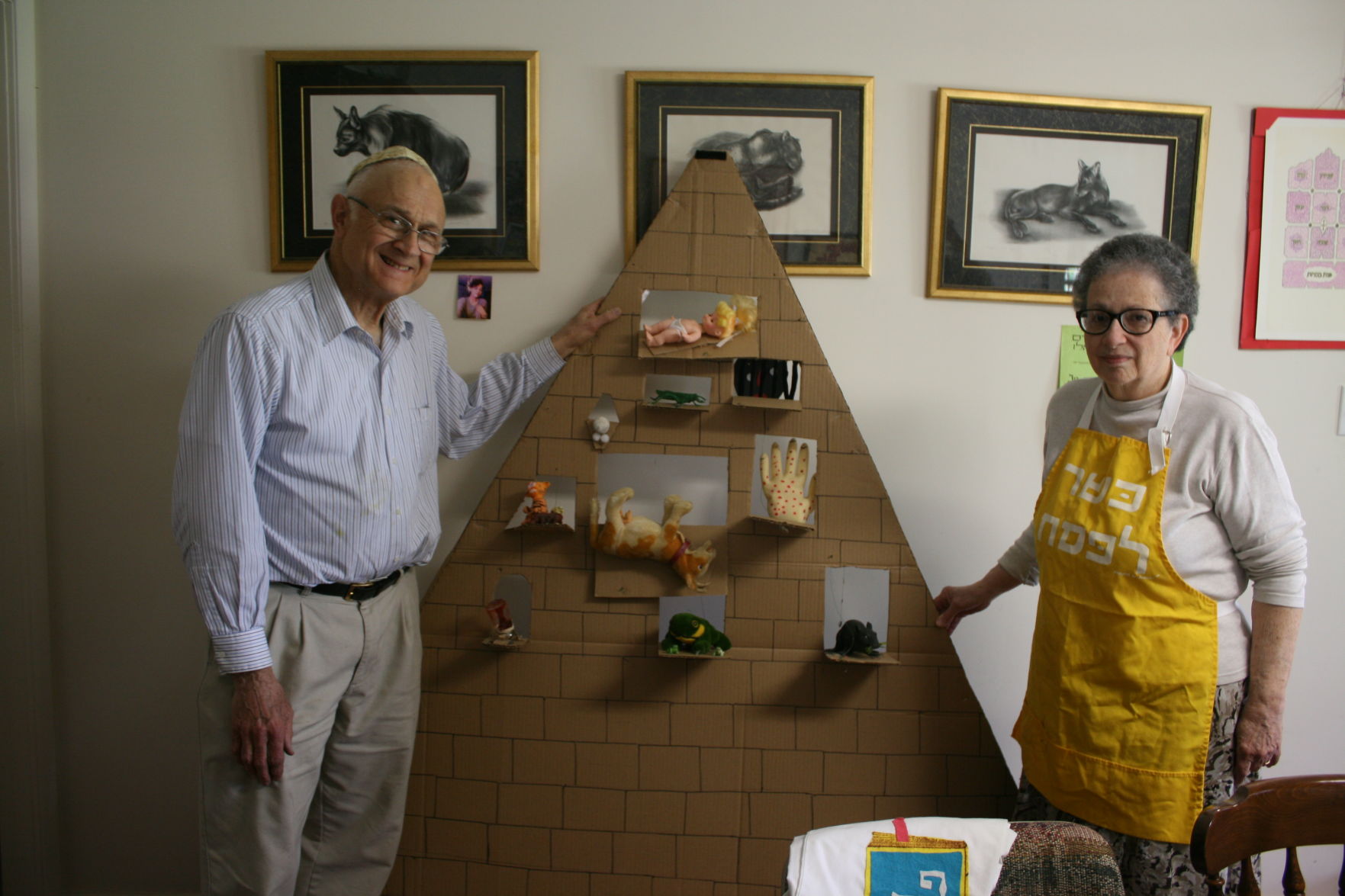By Steve Guggenheim
There was a lot of vacuuming, dust pans filled and rags used in Jewish households before the eight-day Jewish holiday of Passover which began this past Monday night., It wasn’t your normal spring cleaning, but preparation for the Seder and the week of not eating leaven – anything made of yeast for example that will cause bread to rise. You search for bread crumbs, cereal and the like that may have fallen behind cabinets or sofas or beds and then throw it out., But what about items you still have and want to keep like unused muffins and cereal? You can sell them to a non-Jew, who then sells them back to you afterwards., The holiday, which celebrates the exodus of the Jewish people from slavery in Egypt, is one that most look forward to – at least the first and second nights when families and friends gather around the dining room for a dinner called the Seder. You read from the Haggadah, which tells the exodus story. The service includes drinking four glasses of wine and afterwards everyone joins in the singing of Passover songs., Besides celebrating the freedom of the Jewish people, there is another serious side to the story, one made clear to me during interviews with Rabbi Jay Kornsgold and Cantor Larry Brandspiegel of Beth El Synagogue in East Windsor. Both stressed this holiday brings home the idea that many people around the world are not free., Rabbi Kornsgold said it signifies when Jews really became a people. And because of that, just seven weeks later they received the Torah, including the Ten Commandments, the laws defining the religion that made the Israelites into a nation. We were in slavery, became free and became a people. The commandments tell us to set up a calendar and that give you control of when things happen., Kornsgold says this represents freedom for all, but he adds until all people are free, none are free. This sensitizes us to those who yearn for freedom but don’t have it., Another important aspect that makes this holiday so special, and unlike others, is telling the story of the exodus from one generation to another. In the Passover seder the youngest at the family table asks four questions and the adults then answer, an opportunity for the young and the old in the family to connect., Cantor Brandspiegel stresses that Passover is an opportunity to reflect on the value of freedom in a world where there is so much hatred, bigotry, anti semitism, anti culture, anti religion., He says all we want as a human race is the freedom to live. That is what the slaves in Egypt wanted and that is what we want today. Five years ago he may not have been thinking of that, but with today’s problems it comes to the forefront., Brandspiegel, who also is Beth El’s education director, says he wants to sit at the Seder table and say there are no problems. Today we can be as free as the slaves in Egypt. When you have freedom he says everything else falls into place., The cantor says Passover is the holiday of Chag Ha’ Aviv or spring…renewal of the environment and a chance to begin again., He loves Passover, saying on other holidays we can come together but on this one you have to come together as a family., Aside from the food, his favorite part of the Seder are the toys he uses to indicate each of the 10 plagues that were visited on the Egyptians before the Jews were allowed to leave. He uses finger puppets for the four questions. He jokes that man can not live by bread alone, but on Passover that changes to fried Matzah., The rabbi also likes to have fun at the Seder table. During the singing at the end his family acts out the songs. When it says cats you have to sing like a cat.

